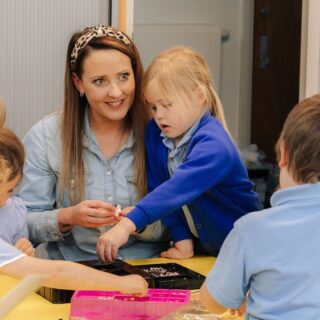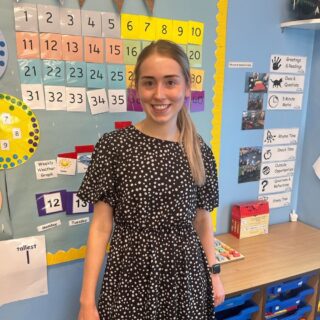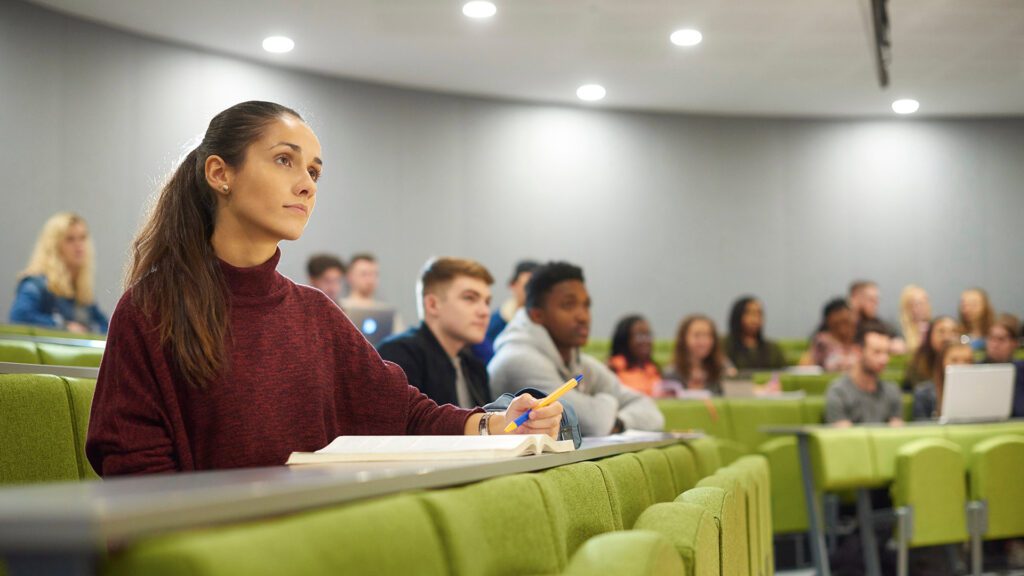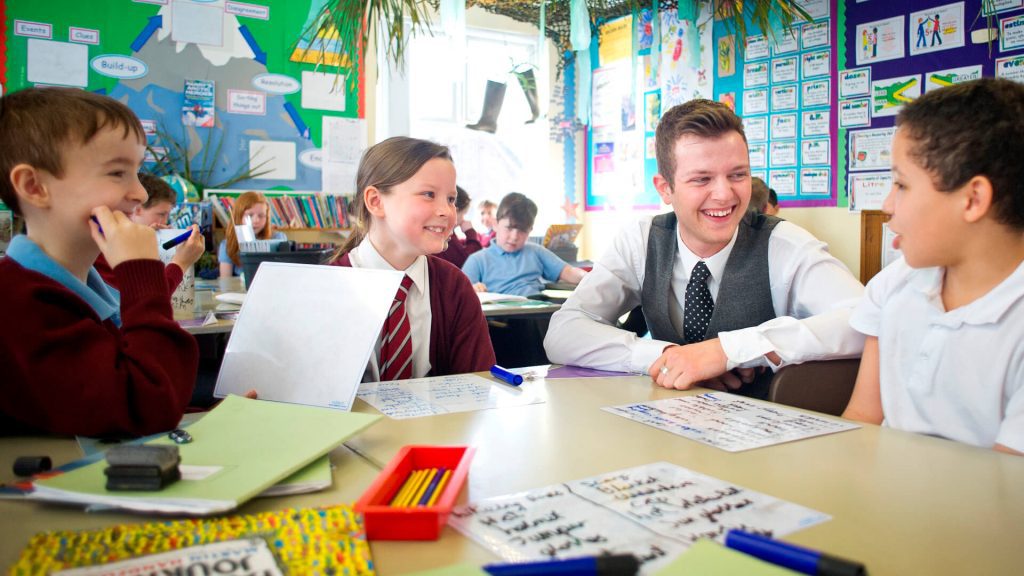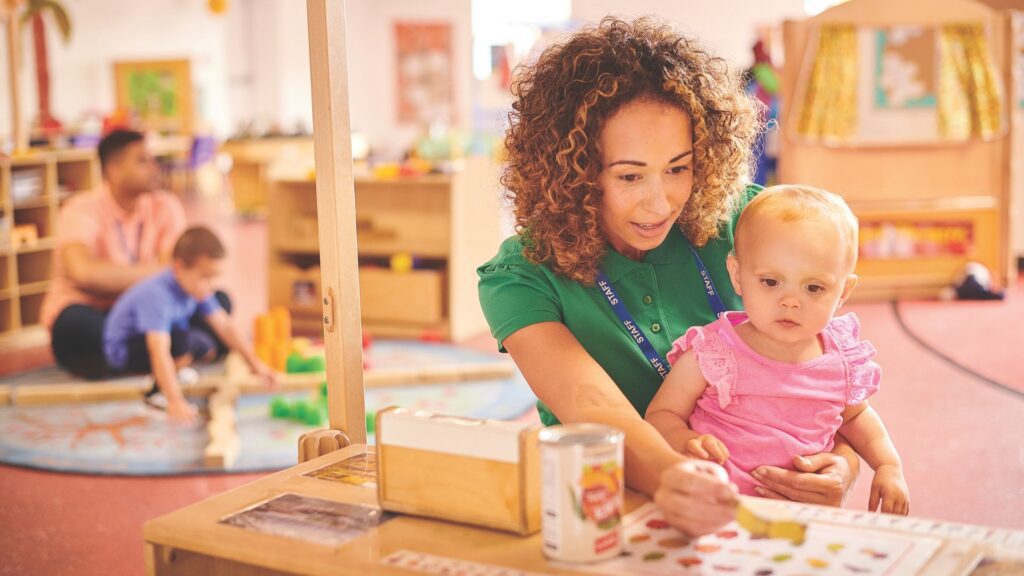Primary Early Years Education with QTS BA (Hons)
UCAS code: X310
Are you striving to become a confident and inspiring teacher? Join us on this degree and gain recommendation for Qualified Teacher Status. Specialise in training to teach children aged 3-7 and learn how to foster the natural curiosity of young children.
Overview
| Course length: | 3 years full-time |
|---|---|
| Start dates: | September 2025 September 2026 |
| Location: | Edge Hill University |
| Example offers: | BBC-BBB (A Level) or DMM (BTEC) |
| Subject(s): | Education and Teaching |
| Faculty: | Education |
| Department: | Early Years Education |
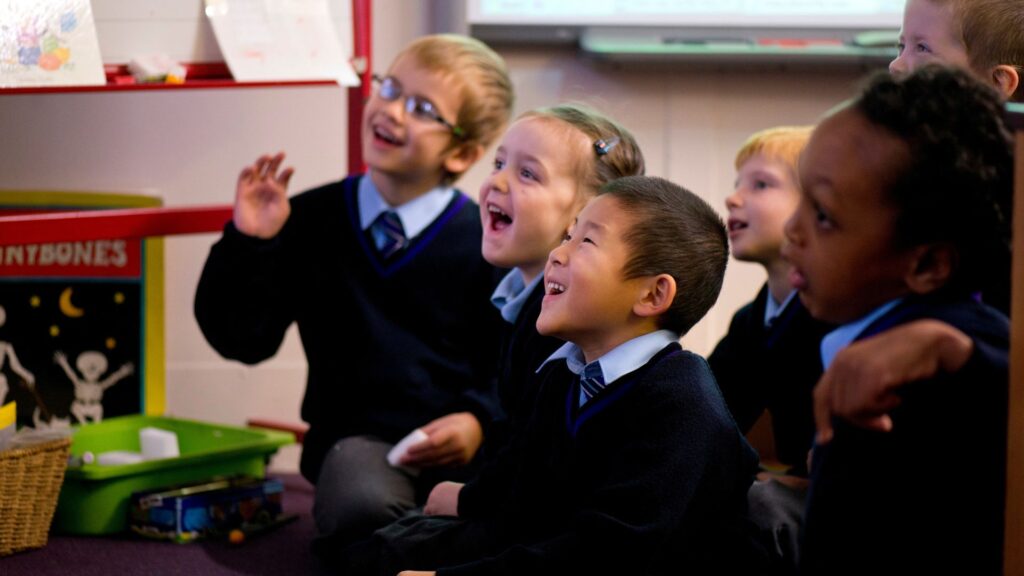
With creative teaching and structured activities, you could inspire young children to learn and develop. On this course, you’ll specialise in education in early years settings and primary schools, from ages 3 to 7.
We’ll help you develop your own expertise and understanding of how children learn. You’ll study both the national curriculum and the EYFS statutory curriculum, and build up your knowledge in the subjects you will be teaching.
You’ll gain experience by working in a variety of schools and other settings, alongside experienced teachers. You’ll also undertake your own research projects to build up your specialist subject knowledge.
Successful completion of the course leads to recommendation for Qualified Teacher Status (QTS).
If you have qualified teacher status (QTS), you’ll get a minimum starting salary of £31,650 (or more in London) as a primary or secondary school teacher in England, rising to £41,333 for more experienced teachers.
With your recommendation for Qualified Teacher Status (QTS), on graduation you could teach in early years foundation stage (EYFS), key stage 1, and key stage 2.
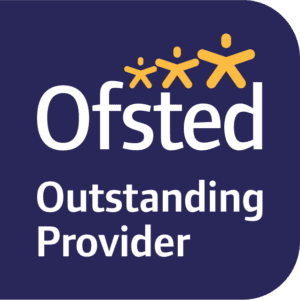 Ofsted Outstanding Provider
Ofsted Outstanding Provider
Course features
-
Ofsted outstanding provider for Initial Teacher Education
-
International students can apply
-
Professional accreditation
-
Professional practice placements
What you'll study
• Studentship and Professional Identity – learn how to study effectively and take charge of your own development. You’ll develop the planning, teaching and assessment skill you need to be an outstanding teacher. We’ll also provide studentship activities that are designed to enhance your academic skills.
• The Curriculum – you will study all the areas of learning and development in the early years foundation stage and all the national curriculum subjects for key stage 1. This includes computing and the use of ICT across the curriculum. With your excellent subject knowledge you can provide stimulating and imaginative learning experiences for children.
• Specialism – you’ll learn about a range of issues linked to children’s learning and development. You’ll study specific areas in detail and undertake small-scale research projects to gain expertise in early years education. This includes a study of early years pioneers and international approaches to early years.
• Professional Practice – you will spend a significant amount of time on professional practice placements in early years and key stage 1 settings during your three years. You’ll gain experience delivering the early years foundation stage and key stage 1 curriculum.
In your first year, you’ll learn the foundations of the early years curriculum. You’ll explore key topics like the nature of play, what it means to be a teacher in the 21st Century, and how to identify characteristics of effective teaching and learning. You’ll explore how settings operate and identify effective teaching techniques. Finally, you’ll embark on your first professional practice placement – observing, planning and assessing learning experiences in the early years foundation stage.
Year 2 builds on some of these themes while preparing you for your professional life. You’ll also explore how you can support children with special educational needs and disabilities and create inclusive primary early years environment. You will also explore the international and historical influences on early years education. Out on professional practice, you’ll build on your skills in assessment and evaluation, so you can ensure pupils make good progress in their learning.
In Year 3 we will look at advanced topics, such as leadership in the early years and educational research. You’ll develop your professional skills and choose your own specialist research topic such as arts and creativity, or mental health. You’ll also have your final professional practice placement where you’ll continue to build on your practical experience, preparing to fully step into the role of a teacher after graduation.
How you'll study
Your programme will comprise significant time in schools and settings being trained by expert teachers and early years practitioners while being fully supported by the University.
During your professional practice you will progress from teaching small groups with a partner to teaching a full class on your own in key stage 1 and Early Years Foundation Stage , alongside planning for continuous provision and adult-led tasks in the early years foundation stage you become more confident in the classroom. You will also benefit from a variety of teaching contexts and the role of leadership and management.
University experience will include lectures, tutorials, seminar groups and independent study supported by online and distance learning materials. In workshops you will engage in, and reflect on, classroom-type activities. In schools and settings you will observe outstanding teachers modelling and reflecting upon a range of approaches to teaching and learning, talk to children and teachers and try out different teaching methods.
You will also undertake Intensive Training and Practice (ITAP) as a specific and focused element of our teacher training curriculum. This is designed to consolidate your knowledge of effective teaching, and enable you to rehearse and obtain feedback from experts on your practice. Our ITAPs are designed to utilise the latest research and technology as well as draw on the outstanding mentors, tutors, and teacher expertise from across our partnership.
Over the course of your training, you will have the opportunity to participate in several days of Intensive Practice focusing on aspects of pivotal practice such as; behaviour management, scaffolding, professional behaviours and questioning.
During periods of ITAP, your timetable may differ and you may be required to attend campus and/or a placement on days outside of the usual pattern.
You will spend a significant amount of time undertaking professional practice placements, normally in key stages 1 and 2 in schools and other educational settings. During these experiences you will have opportunities to observe the work of expert practitioners. You will reflect on and discuss this practice with those practitioners and your trained school-based mentor. As you take on increasing responsibility for children’s learning and development, you will start by working with small groups under the direction of the class teacher, sometimes with a student teacher partner, and progress to planning for and working with the whole class for significant periods of time, managing the learning of every child.
How you'll be assessed
Your learning will be assessed in a variety of ways, including your classroom practice, portfolios of school-based work, written assignments, oral presentations and your teaching in schools and settings. You will be given clear assessment criteria and constructive feedback to enable you to improve further. Assessment on professional practice may use the full school year rather than the University academic year.
There are no formal written examinations as part of the current assessment methods on this programme.
Who will be teaching you
The Faculty of Education has been at the forefront of teacher education for 135 years and today enjoys the enviable position of being one of the country’s leading providers of education, training and research for the children’s workforce.
Your school mentor and university tutors will ensure that you learn from experts within the school and university settings. You will be taught by a range of highly qualified and experienced tutors including expert teachers and early years practitioners. Your tutors care passionately about high quality early years education and will help you to develop your own teaching style.
The Edge Hill lead mentors and mentor leadership team play an important part in your teacher training as experts in their field. They have a deep knowledge of the trainee curriculum and support trainees and mentors to make progress providing guidance and support on aspects of the curriculum and assessment.
Entry criteria
Typical offer 112-120 UCAS Tariff points, for which no specific subjects are required, plus GCSE English Language or English Literature, GCSE Mathematics and GCSE Science at Grade C or Grade 4 or above (or equivalent).
You are expected to have a commitment to early years education, demonstrating the personal attributes, values and motivation required to train as a teacher.
An interview forms part of the selection process, which can be conducted online or face to face.
Please note, for the purposes of initial teacher training, level 2 literacy and numeracy qualifications are not considered as equivalent to GCSE Grade C or Grade 4 in English Language or English Literature and Mathematics.
If you accept a formal offer from Edge Hill University you will be required to meet the Department for Education’s standards for physical and mental fitness to teach and clearance to work with children. Further information, including a Declaration of Health questionnaire and details of how to apply for a Disclosure and Barring Service (DBS) Enhanced Disclosure will be sent to you after you have firmly accepted an offer.
Example offers
| Qualification | Requirement |
|---|---|
| A Level | BBC-BBB. |
| UCAS Tariff points | 112-120 points. |
| BTEC Extended Diploma (or combination of BTEC QCF qualifications) | Distinction, Merit, Merit (DMM). |
| T Level | Overall grade of Merit. |
| International Baccalaureate (IB) | We are happy to accept IB qualifications which achieve the required number of UCAS Tariff points. |
| Access to Higher Education Diploma | 45 credits at Level 3, for example 15 credits at Distinction and 30 credits at Merit or 24 credits at Distinction and 21 credits at Merit. The required total can be attained from various credit combinations. |
Please note, the above examples may differ from actual offers made. A combination of A Level and BTEC awards may also be accepted.
If you have a minimum of two A Levels (or equivalent), there is no maximum number of qualifications that we will accept UCAS points from. This includes additional qualifications such as Extended Project Qualification (EPQ), AS Levels that haven't been continued to A Level, and General Studies AS or A Level awards.
English language requirements
International students require IELTS 6.0, with a score no lower than 5.5 in each individual component, or an equivalent English language qualification.
If your current level of English is half a band, one band, or one-and-a-half bands lower, either overall or in one or two elements, you may want to consider our Pre-Sessional English course.
Fair Entry Criteria
Our new Fair Entry Criteria is a Contextual Admissions Policy that takes an applicant’s personal and educational background into account. This policy will allow eligible applicants to receive up to a two-grade reduction in their entry requirements for this course. Find out more and see if you qualify.
How to apply
Apply full-time
Read our guide to applying through UCAS to find out more about the application process.
International
Please see our international student pages for further information about how to apply as a prospective international student.
Please note, this course is now closed for 2024 entry.
Should you accept an offer of a place to study with us and formally enrol as a student, you will be subject to the provisions of the regulations, rules, codes, conditions and policies which apply to our students. These are available at www.edgehill.ac.uk/studentterms.
If you join a full time undergraduate degree at Edge Hill University, we will guarantee you the offer of a room in our halls of residence for the first year of your course.
Discover our accommodation
Facilities
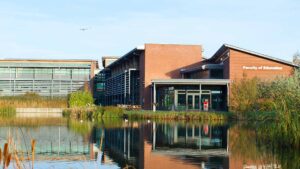
The Faculty of Education enjoys the enviable position of being one of the country’s leading providers of transformative education, training and research for the teaching and education workforce. Housed in a state-of-the-art £9m building, the Faculty of Education enjoys a stunning setting from both its lakeside and piazza buildings.
Facilities in the lakeside building include a 300-seat lecture theatre, five well-equipped ICT suites, and 18 teaching rooms complete with the latest technology.
Our nearby piazza building houses our Research Hub and our Secondary and Further Education department including a lecture theatre and a number of seminar rooms.
Where you'll study
Finance
Tuition fees
UK Full-Time
£9,535
a year
International
£17,000
a year
EU/EEA and Swiss students who have settled or pre-settled status under the EU Settlement Scheme, as well as Irish nationals, may be eligible for the UK tuition fee rate.
Financial support
Subject to eligibility, UK students joining this course can apply for a Tuition Fee Loan from the Government to cover the full cost of tuition fees. UK students enrolling on the course may also be eligible to apply for additional funding to help with living costs.
Scholarships
We offer a range of scholarships, which celebrate the determination, commitment and achievement of our students. Many of our scholarships are awarded automatically. There are some however, where you will need to be involved in an application or nomination process. To find out more about our scholarships and check your eligibility, please visit our dedicated scholarships pages.
Money Matters
Please view the relevant Money Matters guide for comprehensive information about the financial support available to eligible UK students.
EU/EEA and Swiss students who have settled or pre-settled status under the EU Settlement Scheme may be eligible to apply for financial support. Irish nationals can ordinarily apply to Student Universal Support Ireland (SUSI). If you are an EU student who does not have settled or pre-settled status, or are an international student from a non-EU country, please see our international student finance pages.
Your future career
So how do you get early years Qualified Teacher Status? This degree is accredited by the Department for Education. That means that successful completion of the course will enable you to gain recommendation for Qualified Teacher Status (QTS).
You will qualify as a teacher who is able to bring early years practice and underpinning knowledge of child development to your first teaching post, whether this be in the early years foundation stage (EYFS), key stage 1 or key stage 2.
Before the end of your degree, you will need to complete a professional portfolio and viva which acts as a useful bridge between your initial teacher training programme and your two-year induction as an early career teacher.
Course changes
Every effort has been made to ensure the accuracy of this information, however our courses are subject to ongoing review and development. Changing circumstances may necessitate alteration to, or the cancellation of, courses.
Changes may be necessary to comply with the requirements of professional bodies, revisions to subject benchmarks statements, to keep courses updated and contemporary, or as a result of student feedback. We reserve the right to make variations if we consider such action to be necessary or in the best interests of students.
